Kiwi-born Peebles hotel boss looks to the future and says Scotland is “New Zealand in reverse”
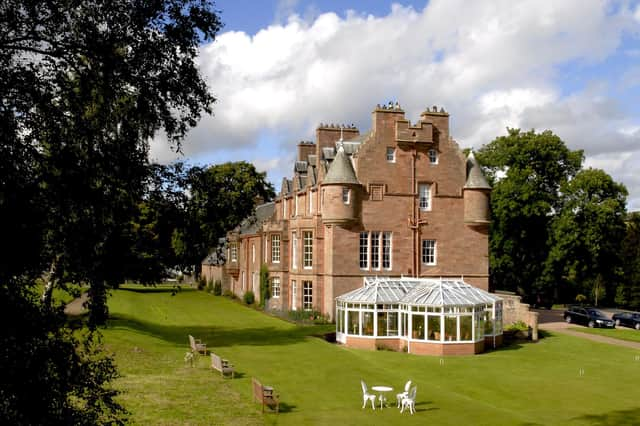

It was back in February 2019 that Bill and his English wife Ann acquired Cringletie in Peebles, a move Bill sometimes describes as a “spectacular display of bad timing”.
After operating upmarket hotels globally for many years Bill retired from corporate life over a decade ago and bought a little business in Wiltshire in England, before selling that enterprise.
Advertisement
Hide AdAdvertisement
Hide AdPondering the future the couple went on holiday to Scotland and were made aware that Cringletie in Edinburgh Road was for sale, visited and instantly fell in love with it.
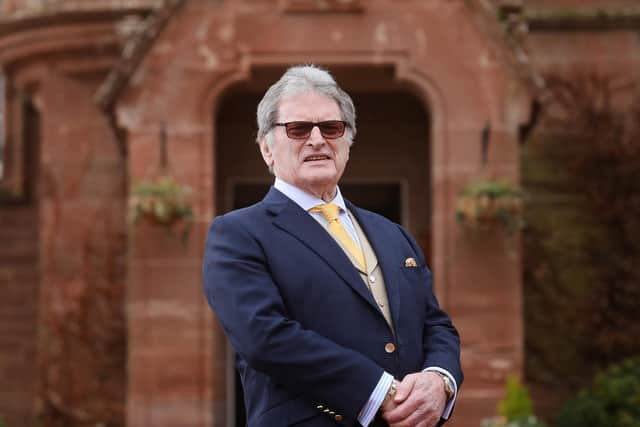

What followed was a near-four-year rollercoaster ride that has incorporated everything from a pandemic and an energy crisis to welcoming a crown prince of Europe through the doors.
But although Bill candidly admits that if he knew then what he knows now he would not have acquired the property he doesn’t look back with regret and feels the timing is now right to finally relaunch his vision for the completion of Cringletie’s restoration.
It was the similarity of the Borders terrain to that of his homeland which helped convince Bill to relocate to Scotland, describing it as “New Zealand in reverse”.
Advertisement
Hide AdAdvertisement
Hide AdKismet appeared to be in the air when, on their first visit to the area, the couple came across the village Cardrona, a name shared with a mountain they regularly used to ski on in Bill’s homeland.
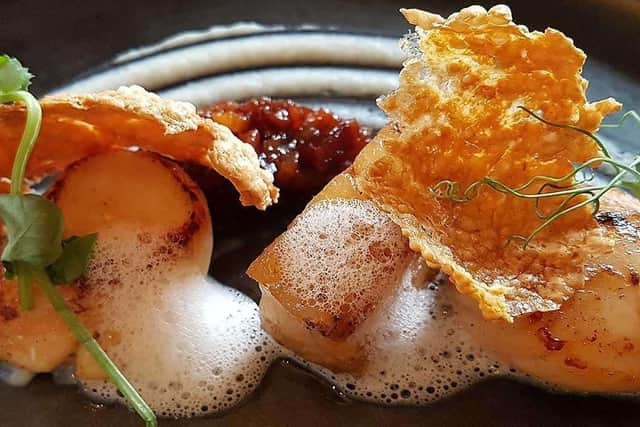

“This part of Scotland is very much like New Zealand, where I grew up. I was born in Wellington but lived on the North Island mainly and I always say Scotland is like New Zealand in reverse. That is to say if you go north in Scotland you have the Highlands, with the rugged landscape. That’s what you get on the South Island of New Zealand with the Southern Alps.
“If you go south in Scotland you have all these rich pasture lands and a lot of sheep which is what you have in the north of New Zealand, so in that way I felt right at home.”
After buying Cringletie the plan was to redevelop and reposition the property – but fate soon stepped in.
Advertisement
Hide AdAdvertisement
Hide Ad“We commenced work on that in the back end of 2019 and we got about half-way through the first first phase of my plan, which involved work in the grounds, including the walled garden.
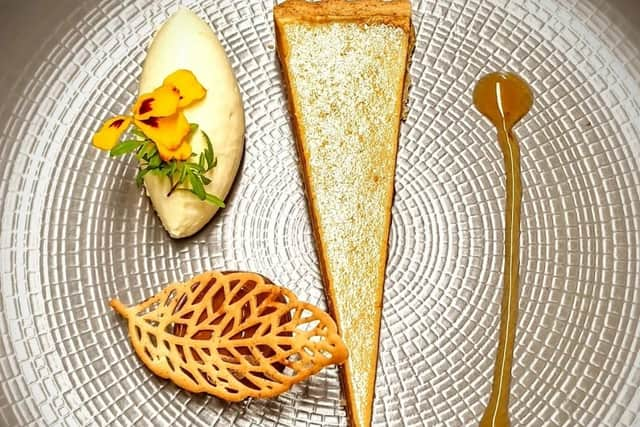

“We did a lot of back of house stuff and refitted the kitchen because we wanted the focus to be on food and there was a fair investment on kitchen equipment.
“We did a big IT upgrade and a lot of recruitment to bring in a new team. Basically, we wanted to take it upmarket, if you like, and you had to get the appropriately qualified people.
“We started this and got half-way through it, which included a re-branding with a new logo, by February 2020, and, of course, in March we went into lockdown.”
Advertisement
Hide AdAdvertisement
Hide AdThe work programme stopped at that point and the hotel opened and closed throughout the Covid-19 crisis.
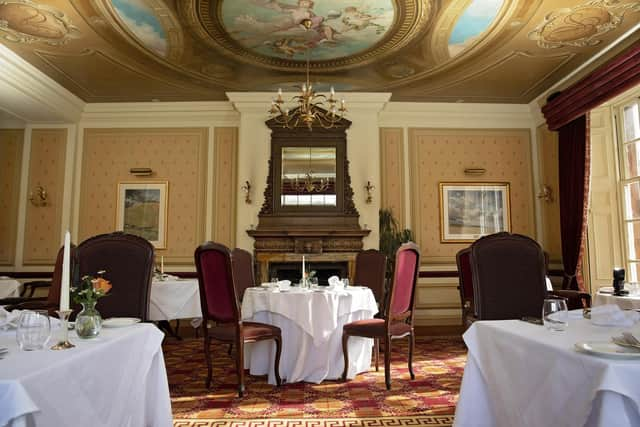

But the post-pandemic world had further challenges on the horizon.
“When we came out of the pandemic we went into the energy crisis, which impacted the operation enormously with electricity going from about £20,000 a year to £75,000. I think now we’re getting into recovery mode.
“Now I have to figure out how and when to resume my works programme. I want to do the conservatory, which is in a pretty bad state, and the garden room that adjoins it. I want to tweak the décor in the restaurant but to leave the basic structure of the room. I want to re-tarmac the drive way, which is a massive cost, and I want to progressively do all the guest rooms. The rooms are good and the bathrooms are very good but they need to be brought up because some are a bit tired.
Advertisement
Hide AdAdvertisement
Hide Ad“A second phase would be to extend the property. We have an opportunity to build more rooms.”
One of the happiest occasions came about last year when Bill received a call from VisitScotland, on behalf of the organisers of the UCI World Cycling Championships, asking if the hotel could host an unidentified VIP guest for lunch.
The guest turned out to be Prince Albert of Monaco.
“We only had about a week’s notice and we tried to create a menu that was particularly Scottish, it had some fantastic Orkney scallops and some Tweeddale beef, which we are always keen to promote.”
The devil is in the detail for Bill and efforts to expand visitor numbers always looms large.
Advertisement
Hide AdAdvertisement
Hide Ad“The clientèle is about 25 per cent overseas and 75 from the UK. We have a contract deal with an outfit called Globetrotting who organise equestrian holidays, which is big for us. It’s great for the South of Scotland because it’s an Australian-based holiday operator that does equestrian holidays all around the world – America, South America, Australia, New Zealand, Ireland – and we are their ‘hotel partner’ in the Borders and they produce about 400 room nights a year, which for a little business like this is huge.
“About 70 per cent of our business is from March to October, those eight months, and the other four months about 30 per cent. It would be a helluva lot less than that but for Christmas and Hogmanay when we are full. I need 30 people for eight months of the year and then for four months I need about 12.”
Plans are also afoot to make the business more cost-effective.
“We know, for example, in terms of electricity that we’ve signed a new contract which starts in February and our electricity next year will be 36 per cent cheaper than it was in 2023, so that’s a big chunk of dosh.
Advertisement
Hide AdAdvertisement
Hide Ad“We practice traditional hotel-keeping. Our clientèle are predominantly an older demographic and retired and affluent. They are also very loyal. We do a lot of guest interaction, personalising everything as much as we can with profile notes on people and everyone gets a welcome card.
“A lot of the guests are repeat business and I’m obviously going to continue with that because they bring friends and introduce people, that’s the core business here. We’re Interested in developing the shoot market, pheasant shooting November to February, to cover the so-called ‘dead months’.
“But it’s a hard market to crack”.
Bill explained: “These guys have £30,000 – £40,000 shotguns and pay ten grand a day for a shoot. But when it comes to their accommodation they like to stay in cheap places because they don’t want to spend more than £100 on dinner, bed and breakfast.
“Ironically a lot of these people are high wealth individuals, as you’d have to be to pursue the sport, so we’ve targeted that.”
Advertisement
Hide AdAdvertisement
Hide AdThe couple’s efforts to raise the profile of the hotel are also having an impact.
“We wanted the focus here to be on food. My wife is a foodie and we have a very good chef, a brilliant cook, Iain Gourlay, he’s been a finalist twice in the National Chef of the Year competition. He got us a second AA Rosette and we’re trying to get a third. We’ve won various Scottish awards for the ‘best dining experience’, ‘best breakfast’. Most of the Trip Advisor comments concentrate on the food and service.”
The venue was also nominated for a National Thistle Award for ‘Best Hotel Experience’, won by Sir Andy Murray’s brainchild, the Cromlix in Dunblane.
“And rightly so”, said Bill, adding: “I’m delighted Sir Andy Murray made an investment in the hotel sector because it needs more investment. He’s reared a wonderful facility for Dunblane.”
Advertisement
Hide AdAdvertisement
Hide AdBill admits that his approach to the hotel business is defiantly “old school”.
“I believe in traditional hotel keeping, which contrasts with more modern management where the manager in the business might be at his computer, doing analysis. I’m a bit more into talking to the guests.
“I do a walk round in the morning and a walk round at night most days of the week. My wife and I think it is very unusual because we go to hotels where we stay regularly where we never see hide nor hair of the manager or anyone other than the waiter that looks after us at the table.
“When I started in the 60s that was all you did – you were mein host. That’s what hospitality was about.
Advertisement
Hide AdAdvertisement
Hide Ad“You lead by example, and I think if you have a caring attitude to the guests, and you go to the bother of talking to people, it rubs off on the staff and that becomes the style of service.
“That’s why we get good guest feedback, not because I speak to every guest but the staff collectively follow that style of operation and I think people notice it, probably because it’s not that common.
“I want the staff to understand the importance of looking after the guests, but they’ve got their own personality, so you talk to people in your way, don’t try to ape me and crack corny jokes.”
Not that the personal approach always works, as Bill found out when helping to oversee a friend’s hotel in Rotterdam many years ago.
Advertisement
Hide AdAdvertisement
Hide Ad“It was a 230-room hotel and I did the ‘lobby patrol’ at 7.30am for an hour and talked to guests as they checked out.
“I remember going to people saying, ‘good morning, Bill Cross, hotel general manager’ and they’d say ‘what have I done? – what have I done?’. They thought they were being apprehended for stealing from the room – and I just wanted to say hello.”
CRINGLETIE HOUSE : A REVIEW
Warmth emanates from every nook and cranny of Cringletie.
That’s not just a reference to the hotel’s roaring log fires in the bar and lounges. It also embodies the approach of staff and their attention to detail, personalised service and obvious devotion to making your stay a special one.
Cringletie is a luxury hotel but it’s not a stuffy one, the atmosphere is relaxed and informal, even homely.
Advertisement
Hide AdAdvertisement
Hide AdThe Victorian Scottish baronial hotel on a 28-acre estate has much to recommend it – it’s dog friendly, wheelchair accessible, has a wonderful sweeping staircase and a delightful walled garden to explore.
Attention to detail is the ethos of Cringletie, and each guest receives a personalised welcome message from owner Bill Cross.
The Selkirk Suite has a spa bath and walk-in jet shower, is supplied with Scottish-made toiletries, a Nespresso machine, Scottish shortbread and complimentary Borders whisky,
But it’s the food glorious food that is set at the highest of bars at Cringletie, the elegant Sutherland restaurant – with its classical scene painted ceiling – is regarded by knowledgeable foodies as one of the finest in the Borders.
Advertisement
Hide AdAdvertisement
Hide AdBreakfast is traditional, Scottish fare, including smoked haddock, and dinner is made up of nine small dishes, including loin of Tweed Valley venison and fillet of Loch Etive sea trout, followed by spiced pumpkin cheesecake.
Head chef Iain Gourlay and his team deserve plaudits aplenty for plundering the best quality local produce available.
Then there’s hotel owner, jaunty-jolly Mr Cross, the antithesis of Basil Fawlty, who oversees proceedings like a proud father, subtly mingling with guests to ensure they’re happy with the service.
My eight-year-old son is perhaps not of an age to fully appreciate the culinary delights on offer but was more than delighted to be offered a visit to the kitchen to hear the Jingle Bells-playing oven.
That’s Cringletie – a personalised service with a smile.
For more information go to https://www.cringletie.com/